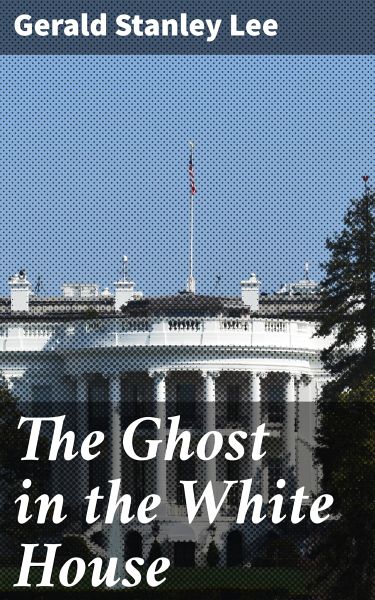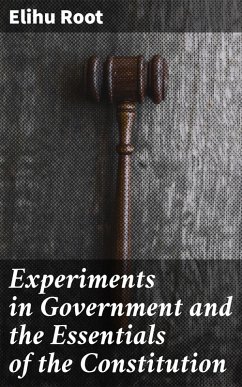
The Ghost in the White House (eBook, ePUB)
Exploring power, morality, and integrity in early 20th-century America
Versandkostenfrei!
Sofort per Download lieferbar
0,49 €
inkl. MwSt.
Weitere Ausgaben:

PAYBACK Punkte
0 °P sammeln!
In "The Ghost in the White House," Gerald Stanley Lee explores the intertwining of politics and morality through a captivating narrative that blends elements of political commentary with a poetic literary style. Written during the early 20th century, the book reflects the socio-political anxieties of its time, offering a critical lens on the power dynamics and corruption within American governance. Lee employs vivid imagery and lyrical prose, making poignant observations about the nature of leadership and the shadows that haunt those in authority. Gerald Stanley Lee, an influential figure in e...
In "The Ghost in the White House," Gerald Stanley Lee explores the intertwining of politics and morality through a captivating narrative that blends elements of political commentary with a poetic literary style. Written during the early 20th century, the book reflects the socio-political anxieties of its time, offering a critical lens on the power dynamics and corruption within American governance. Lee employs vivid imagery and lyrical prose, making poignant observations about the nature of leadership and the shadows that haunt those in authority. Gerald Stanley Lee, an influential figure in early American literature and social criticism, was known for his keen insights into societal issues and human psychology. His diverse background as a journalist and social activist informs this work, allowing him to weave personal anecdotes and historical references seamlessly into his narrative. Lee's commitment to exploring the moral implications of political actions is rooted in his belief that the personal and political are intrinsically linked, a theme present throughout his oeuvre. This book is a must-read for anyone interested in the historical complexities of American politics and the enduring relevance of ethical considerations in governance. Lee's skillful craftsmanship invites readers to reflect deeply on the legacies of leadership, making "The Ghost in the White House" a thought-provoking addition to the canon of American political literature.
Dieser Download kann aus rechtlichen Gründen nur mit Rechnungsadresse in A, B, BG, CY, CZ, D, DK, EW, FIN, F, GR, H, IRL, I, LT, L, LR, M, NL, PL, P, R, S, SLO, SK ausgeliefert werden.













